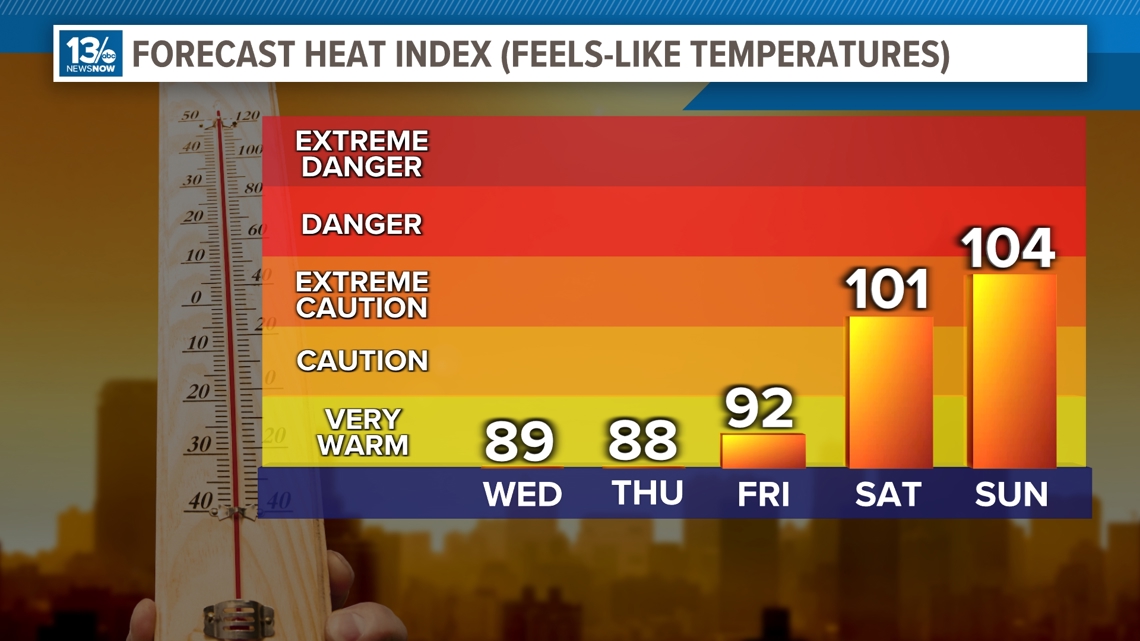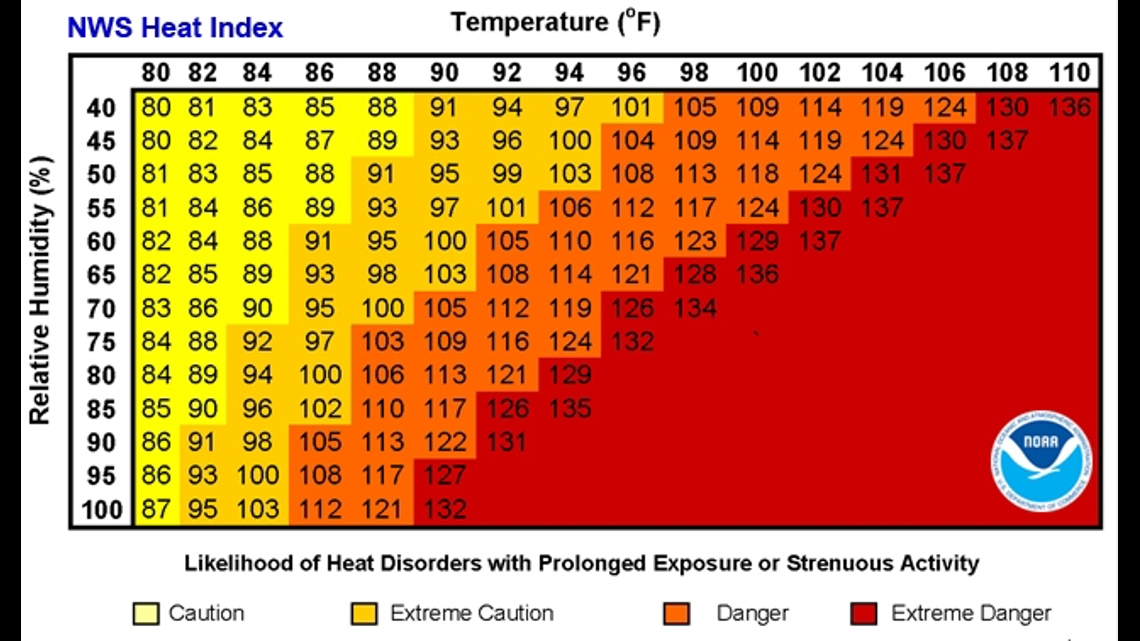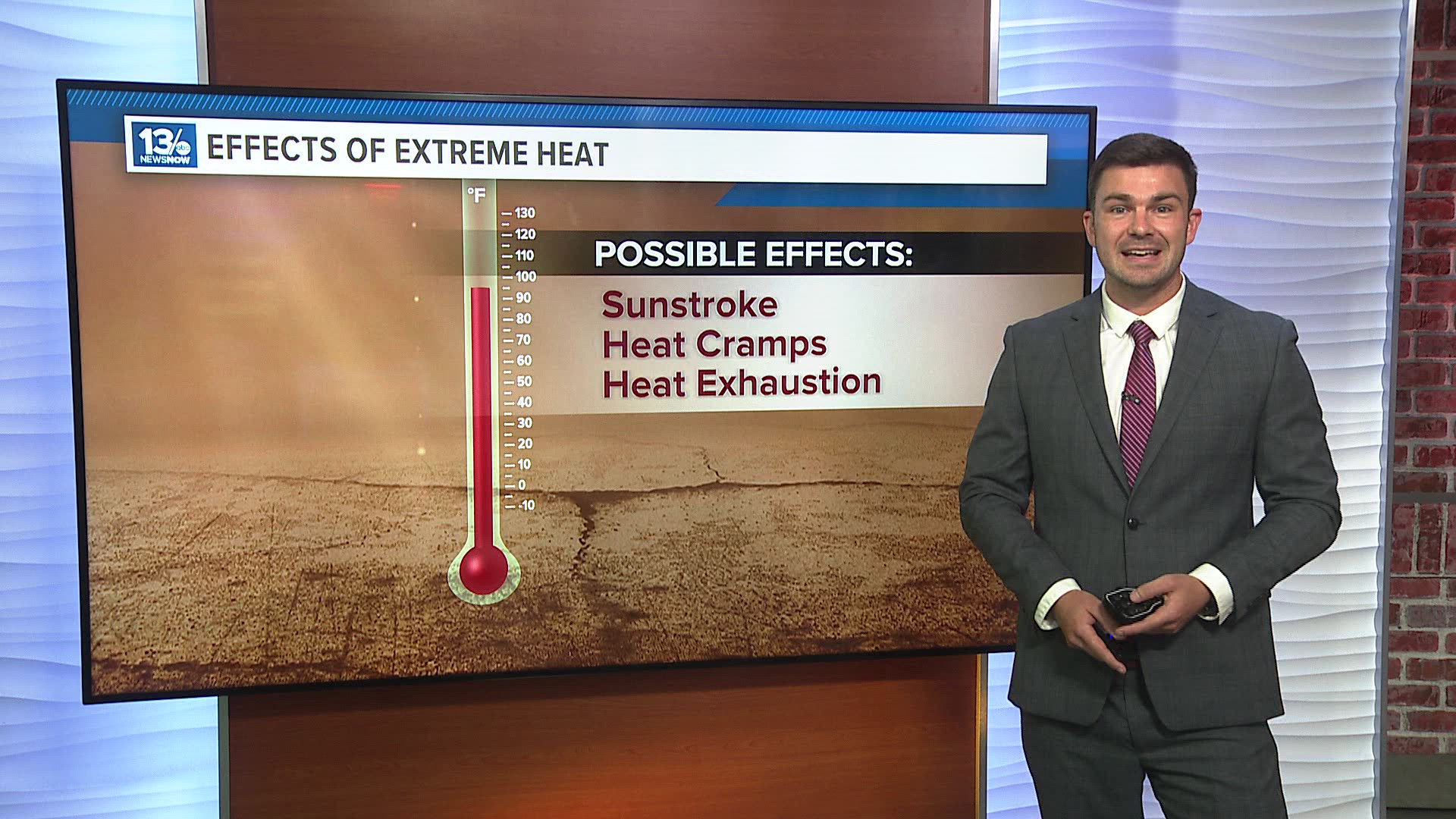NORFOLK, Va. — Temperatures in Hampton Roads this weekend are expected to reach the low to mid-90s, along with an increase in dew point temperatures. This will cause the feels-like temperatures in the area to feel like over 100 degrees. But why do our bodies feel hotter when it's more humid out?
The heat index is a measurement that considers both air temperature and humidity to determine how hot it actually feels to the human body, according to the National Weather Service (NWS).
RELATED: FORECAST: More sunshine, more heat
When it's hot and humid, our bodies sweat to cool down, but if the air is already saturated with moisture, sweat doesn't evaporate easily, making it harder for our bodies to cool off. This is where the heat index comes into play.


The science behind the heat index involves the body's ability to regulate temperature through sweating. When the air is humid, the moisture in the air slows down the evaporation of sweat from our skin, which is the body's way of getting rid of the heat.
This is why high humidity levels can make the temperature feel hotter than it actually is. The heat index considers this decreased ability for sweat to evaporate and calculates what the temperature would feel like to the average person under those conditions.
To determine the heat index, there is a formula that factors in temperature and humidity levels to determine the heat index, but the National Oceanic and Atmospheric Administration (NOAA) also has a helpful chart to easily determine the heat index.
By having a better idea of what the day will feel like, people can better prepare for a hot and humid day by taking precautions like staying hydrated, seeking shade, and avoiding strenuous activities during the hottest parts of the day. It's a crucial tool for public health and safety, especially during heatwaves when heat-related illnesses can become a serious concern.


When the heat index rises to dangerous levels, there is certainly a cause for concern, especially with vulnerable populations such as infants and the elderly. It can cause sunstroke, heat cramps and heat exhaustion.
Dew points can reach high levels, causing extreme heat indexes that usually occur near warm bodies of water.
In the Persian Gulf, water temperatures can reach up to 90°F in summer, allowing for dew points to be that high as well. The highest dew point ever recorded was 95°F in Dhahran, Saudi Arabia, on July 8, 2003, where the air temperatures reached 108°F and the heat index was 178°F.
The heat index provides important information about how the combination of temperature and humidity can rapidly affect the human body's perception of heat. When we have more of an understanding of this concept, individuals can make informed decisions to stay safe and healthy during periods of high heat and humidity.

